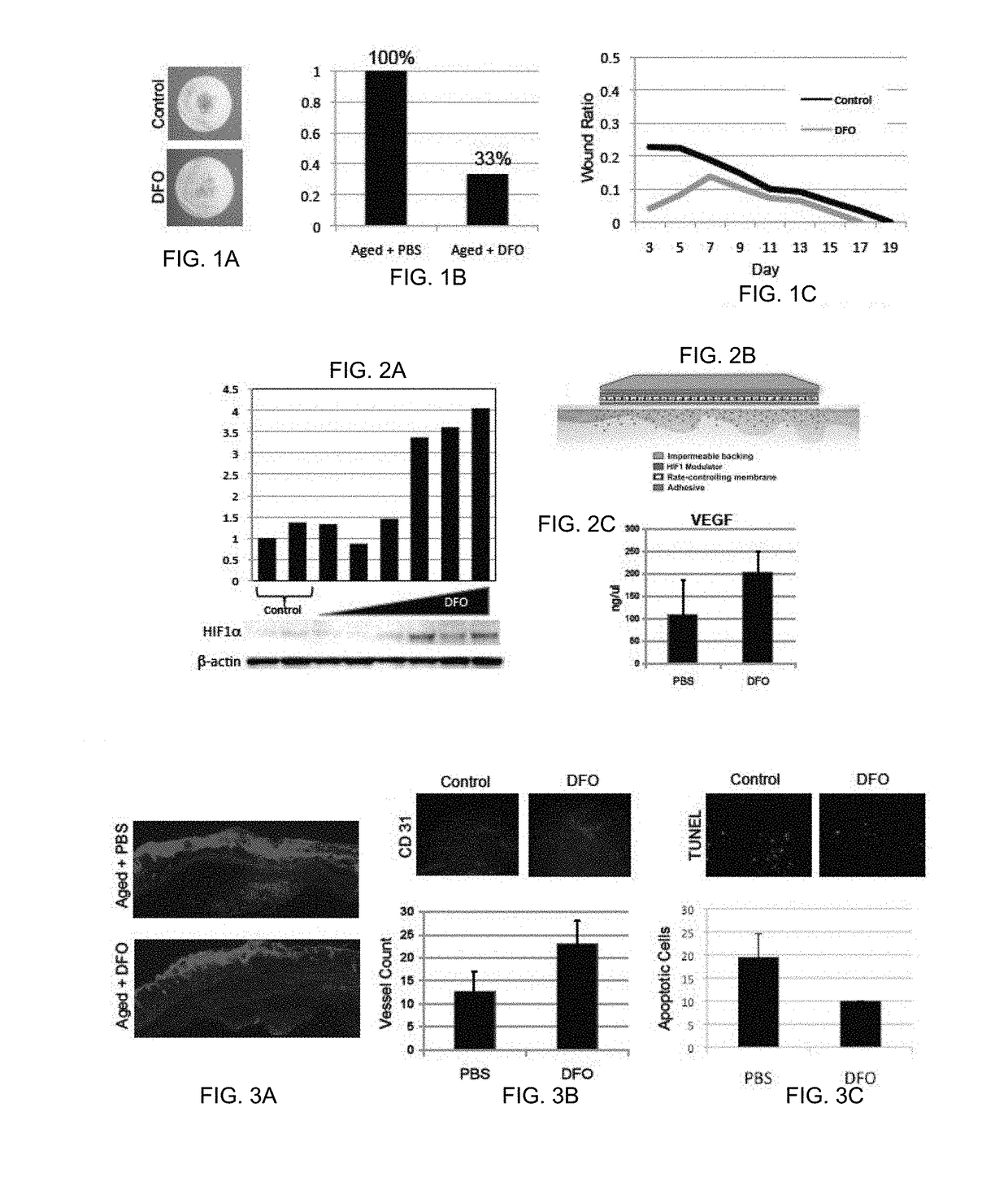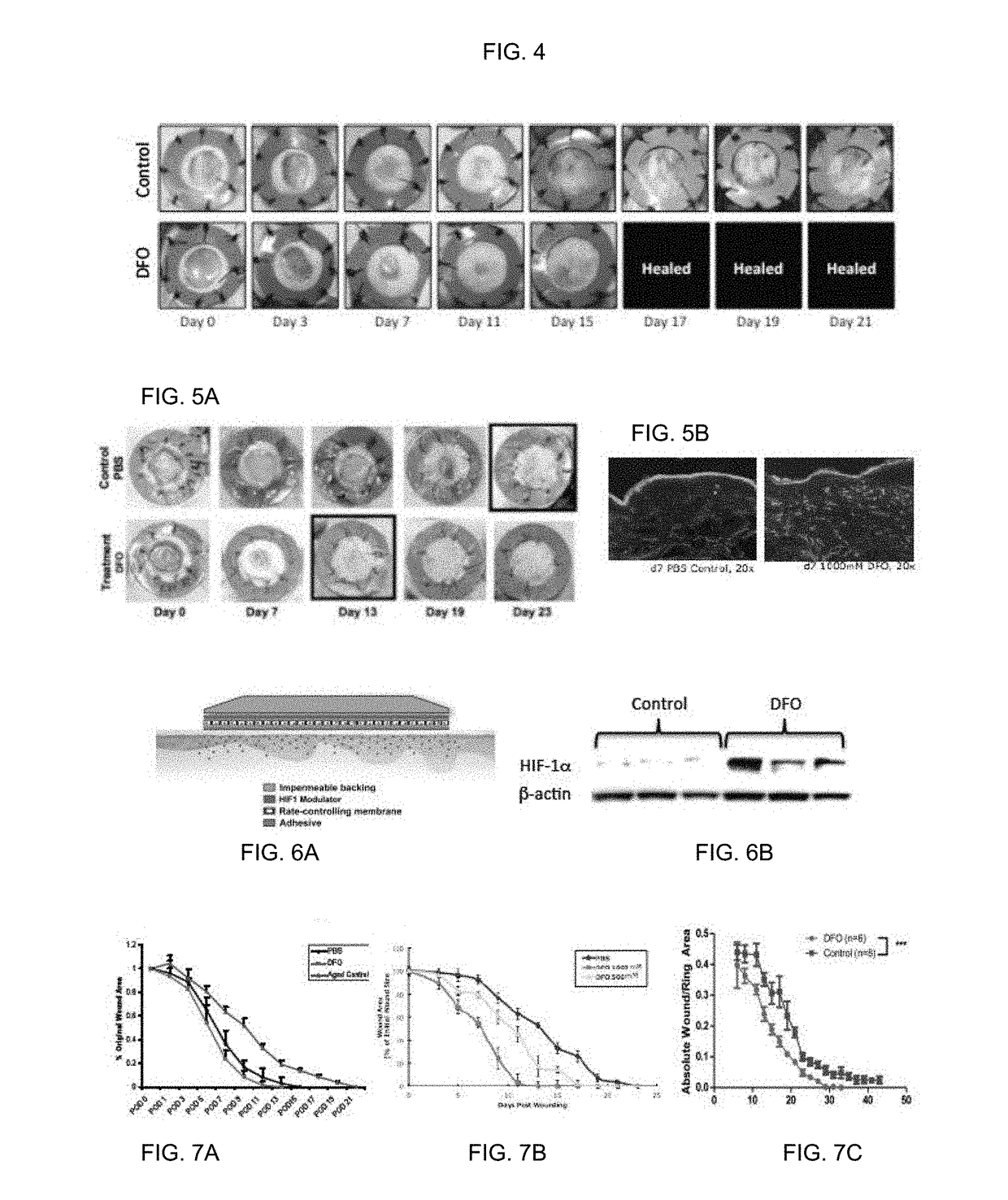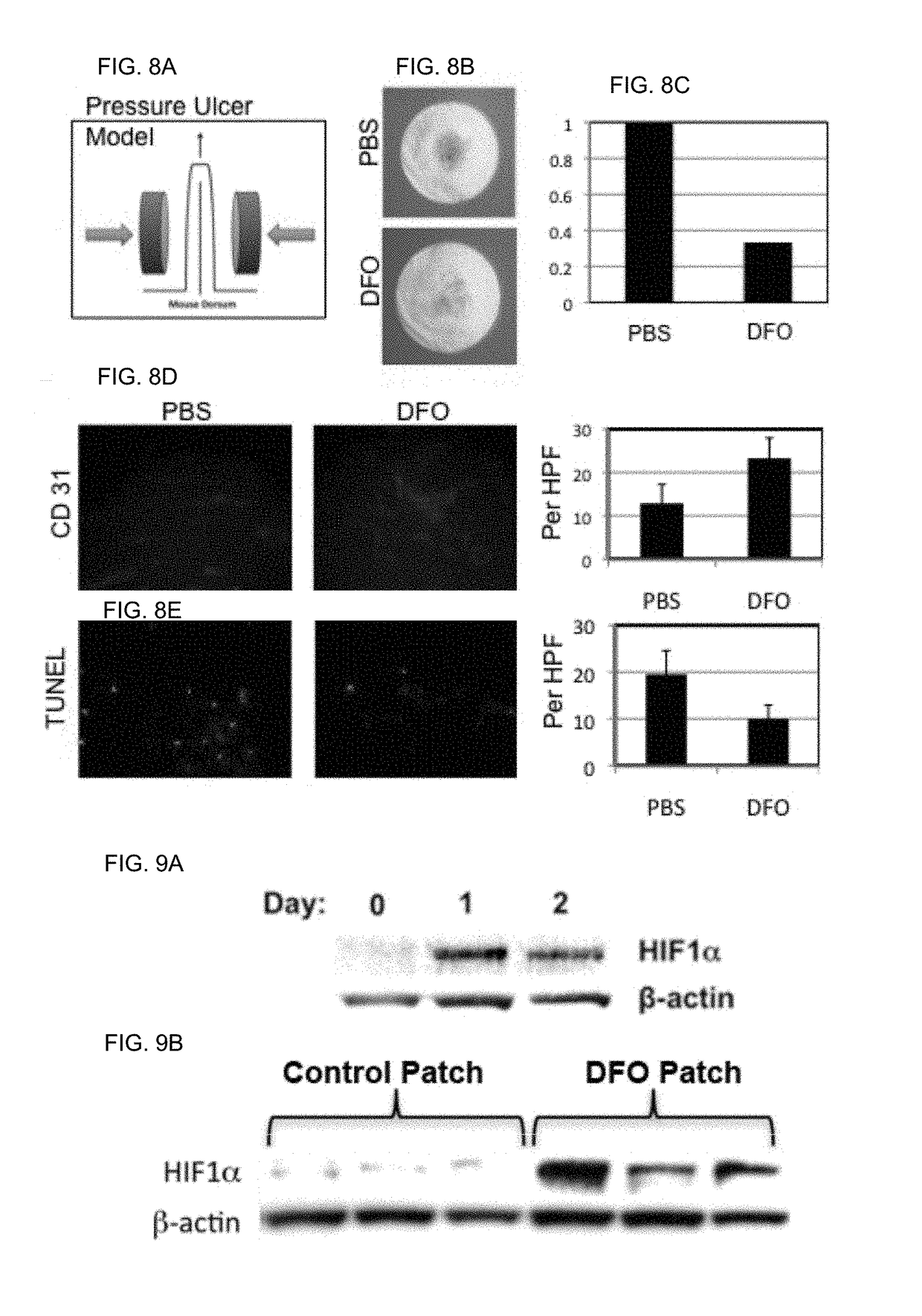Topical and transdermal delivery of hif-1 modulators to prevent and treat chronic wounds
a technology of hif-1 modulator and wound, applied in the direction of amide active ingredients, pharmaceutical delivery mechanism, emulsion delivery, etc., can solve the problems of prolonged and incomplete wound healing, affecting the quality of life of millions of people, and burdening society in terms of productivity and health care dollars lost, etc., to improve wound healing and increase the activity of hif-1 in the wound
- Summary
- Abstract
- Description
- Claims
- Application Information
AI Technical Summary
Benefits of technology
Problems solved by technology
Method used
Image
Examples
example 1
[0111]In a murine wound healing model, we have found that HIF-1 modulators act to dramatically improve healing rates and tissue survival by significantly increasing the density of blood vessels when administered topically and transdermally. In a murine pressure ulcer model, we have shown that HIF-1 alpha modulators provide an efficient and sustained means of preventing decubitus ulcer formation compared to delivery controls (FIG. 1A, 1B). Additionally, ulcer closure rates significantly increase through the correction of neovascularization (FIG. 1C). We have found that this occurs due to a dose-dependent induction of HIF-1 alpha directly and indirectly, by decreasing degradation (FIG. 2A). Induction of HIF-1 alpha increases downstream hypoxia responsive genes, which in turn decrease reactive oxygen species (FIG. 3A), stimulate vascular growth (FIG. 2C, 3B), decrease cell death (FIG. 3C), and thus improve wound healing. HIF-1 alpha modulators have promising implications for preventing...
example 2
[0117]Targeting the HIF-1 alpha regulated neovascularization cascade reverses the impairments seen with diabetic wounds. HIF-1 alpha modulators such as deferoxamine and dimethyloxalylglycine, are small molecules that increase HIF-1 alpha stability. Deferoxamine (also known as desferrioxamine, desferoxamine, DFO) is a FDA-approved iron chelator approved for systemic administration. Dimethyloxalylglycine inhibits HIF-1 alpha degradation, thus also increasing HIF-1 alpha levels. These HIF-1 modulators can treat and more importantly prevent a broad range of diabetic wounds and ulcers in humans.
[0118]In a murine wound healing model, we have found that local delivery of HIF-1 alpha modulators act to dramatically improve healing in aged animals comparable to young controls (FIG. 4A, 7A), and in diabetic animals (FIG. 5A, 7B). Diabetic animals show markedly decreased wound healing, with wound closure at Day 23. Treatment with topical delivery of HIF-1 alpha modulators results in significant...
example 3
[0122]New vessel growth is essential for the delivery of nutrients and maintenance of oxygen homeostasis in cutaneous tissue repair. As such, inadequate neovascularization is a major factor in the development of chronic wounds. Diabetic patients are at an increased risk for impaired tissue recovery following ischemic insult and are known to have severe deficits in wound healing. Diabetic foot ulcers represent one of the most common sequelae of diabetes-associated dysfunction in new blood vessel growth and are associated with considerable morbidity. The predictable location of these lesions and their well-described pathophysiology makes diabetic foot ulcers an ideal target for therapeutic interventions aimed at treatment and prevention through restoration of normal neovascularization.
[0123]Diabetic foot ulcers develop as a result of repetitive and prolonged pressure exerted on the skin, soft tissue, and bone. This is exacerbated by a loss of protective sensation and compounded by str...
PUM
| Property | Measurement | Unit |
|---|---|---|
| Fraction | aaaaa | aaaaa |
| Fraction | aaaaa | aaaaa |
| Fraction | aaaaa | aaaaa |
Abstract
Description
Claims
Application Information
 Login to View More
Login to View More - R&D
- Intellectual Property
- Life Sciences
- Materials
- Tech Scout
- Unparalleled Data Quality
- Higher Quality Content
- 60% Fewer Hallucinations
Browse by: Latest US Patents, China's latest patents, Technical Efficacy Thesaurus, Application Domain, Technology Topic, Popular Technical Reports.
© 2025 PatSnap. All rights reserved.Legal|Privacy policy|Modern Slavery Act Transparency Statement|Sitemap|About US| Contact US: help@patsnap.com



